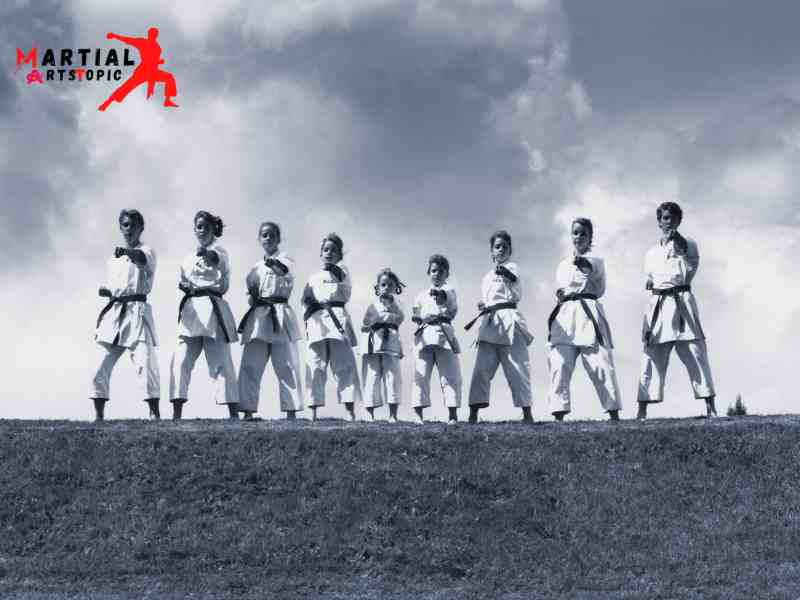
The Power of African Martial Arts
African martial arts, also known as African combat systems, possess a remarkable power that is deeply rooted in the rich cultural heritage of the continent. These diverse fighting techniques, passed down through generations, showcase the strength, agility, and resilience of African warriors. From Capoeira in Brazil to Nuba wrestling in Sudan, African martial arts encompass a wide range of disciplines that promote physical fitness, self-defense, and personal growth. With their emphasis on body control, rhythm, and strategic movements, practitioners of African martial arts can unlock not only their physical potential but also gain a profound understanding of their cultural identity and ancestral traditions. Embark on a journey to discover the power and beauty of African martial arts and experience the transformative impact they can have on one’s mind, body, and soul.
Historical Background
African martial arts have a rich historical background that stretches back centuries. These ancient combat practices originated from diverse regions across the continent, each with its unique fighting techniques and cultural significance. African martial arts encompass various disciplines, such as Nuba wrestling, Dambe boxing, and Capoeira. We used these practices for self-defense and warfare, but also to preserve cultural traditions and instilling discipline and strength. Today, African martial arts continue to thrive, blending traditional techniques with modern adaptations, attracting practitioners and enthusiasts worldwide. Explore the fascinating history and evolution of African martial arts, and discover the power and grace behind these ancient combat traditions.
The origins of martial arts in Africa
A Journey into Ancient Combat Techniques. African martial arts have a rich and diverse history that dates back centuries. The continent is home to a vast array of fighting styles and techniques, each with its own unique origins and cultural significance. From the Nile Valley to the savannahs of West Africa, the roots of African martial arts run deep. The fascinating history of African martial arts and shed light on their evolution.
Africa is a continent known for its dynamic culture, and martial arts are no exception. African martial arts encompass a wide range of combat styles that have been practiced for centuries. These include stick fighting, wrestling, and various weapon-based techniques. Someone deeply rooted each martial art in the culture and history of the region it originates from.
One of the most well-known forms of African martial art is Nuba wrestling. Originating from Sudan, Nuba wrestling is a traditional combat sport that dates back thousands of years. In this ancient form of wrestling, competitors wear nothing but a loincloth and engage in intense physical combat. Nuba wrestling is not only a sport but also a way to settle disputes and showcase strength and bravery.
Another prominent African martial art is Dambe, which hails from Nigeria. Dambe is boxing that has its roots in the Hausa tradition. It is characterized by strikes using the fist, hand, and leg, and is often accompanied by traditional music and dance. Dambe competitions are a popular spectacle in Nigeria, drawing large crowds who come to witness the skill and technique of the fighters.
In West Africa, there is a martial art known as Laamb, which is native to Senegal. Laamb, also referred to as Senegalese wrestling, combines elements of wrestling and striking. It is not only a physical competition but also a display of cultural identity and pride. Wrestlers often wear colorful traditional attire and perform rituals before a match. Laamb has gained international recognition and has become a popular sport in Senegal and beyond.
Apart from these well-known martial arts, Africa is also home to countless other combat styles that have been passed down through generations. Many of these styles are specific to particular tribes or regions and are deeply ingrained in their cultural heritage.
Diverse and Unique Techniques
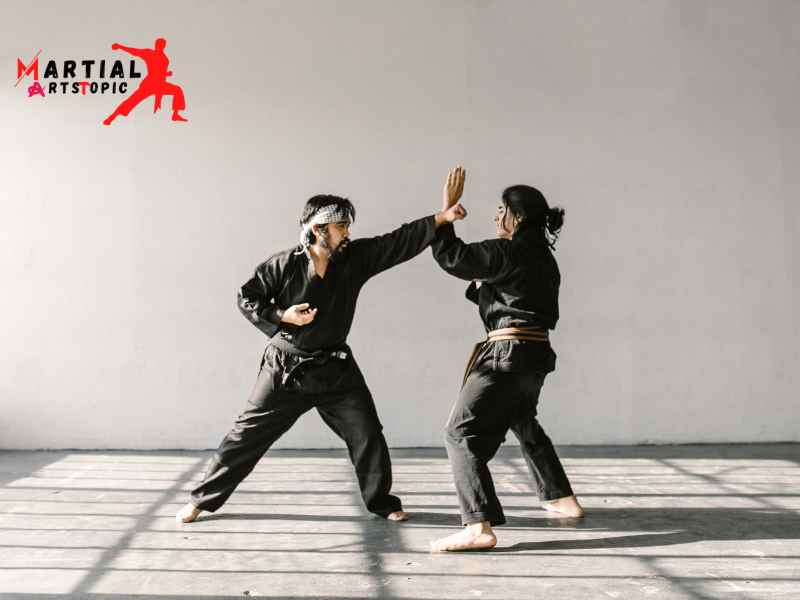
African martial art encompass a rich and diverse array of combat techniques that have strengthened over centuries. These unique forms of self-defense have not only served as practical skills but also as cultural expressions and sources of identity. From the powerful strikes of Nguni stick fighting to the graceful movements of Capoeira, African martial arts showcase a wide range of techniques and styles. The intricacies of African martial art not only provides a physical workout but also offer a deeper understanding of African cultures and traditions. Embracing the beauty and strength of African martial arts can be a transformative and enriching experience for practitioners of all backgrounds.
African Martial Arts Styles
African Martial Arts Styles offers a captivating journey into the diverse world. From Nuba wrestling in Sudan to Dambe boxing in Nigeria, this article sheds light on the rich heritage and techniques of African martial arts. These ancient fighting styles, deeply rooted in African culture and tradition, exemplify strength, discipline, and resilience. Discover the captivating history and unique techniques of African martial arts, as well as the cultural significance they hold within their respective communities. Immerse yourself in the dynamic world of African martial arts and uncover the hidden treasures of this fascinating discipline.
Global Recognition and Impact
African martial arts have gained significant global recognition and are making a profound impact on the world. These unique combat systems rooted in African culture showcase a diverse range of techniques, philosophies, and traditions. From the acrobatic Capoeira of Brazil to the powerful Nuba fighting styles of Sudan, African martial arts continue to captivate enthusiasts and practitioners worldwide. The rich history and distinctiveness of these martial arts have contributed to their growing popularity, not only as forms of self-defense, but also as platforms for cultural exchange and physical fitness. As more people discover the beauty and effectiveness of African martial arts, their influence and reach are expanding, fostering greater appreciation and understanding of African heritage and traditions globally.
Key African Martial Arts Styles
African martial arts, also known as African combat systems, encompass a rich and diverse range of traditional fighting styles practiced across the continent. These African martial arts styles showcase the unique cultural heritage and historical significance of Africa. From the powerful strikes of Nuba wrestling in Sudan to the acrobatic movements of Capoeira in Angola, African martial arts exhibit a deep connection to physicality, spirituality, and community. With their emphasis on self-defense, discipline, and cultural preservation, African martial arts continue to thrive and captivate practitioners and enthusiasts worldwide. Discover the dynamic world of African Martial Art and embrace the rich traditions that have shaped this fascinating discipline.
Engolo
African martial art, has a rich history and cultural significance. I know this dynamic combat style originated in Angola and for its unique blend of dance, acrobatics, and self-defense techniques. Engolo practitioners showcase incredible agility, strength, and coordination while engaging in combat, making it an awe-inspiring martial art to witness. With its roots deeply embedded in African traditions, Engolo not only serves as a means of physical training but also to preserve and celebrate the cultural heritage of the region. Embrace the power and grace of Engolo as you delve into the world of African martial arts.
Nuba wrestling (Sudan)
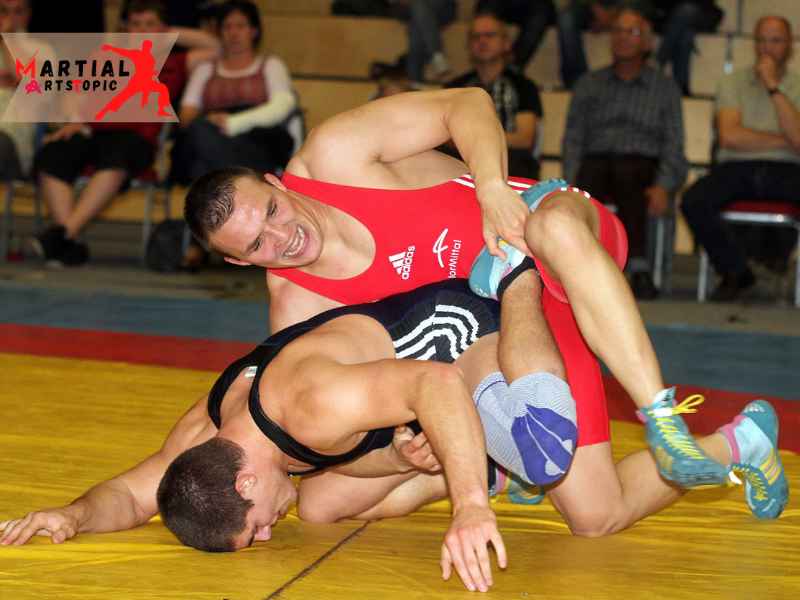
Nuba wrestling, also known as African Martial Arts, is a traditional combat sport originating from Sudan. This ancient form of wrestling has deep cultural roots in the Nuba tribes and has been practiced for centuries. African Martial Arts showcases the strength, agility, and strategic skills of the participants as they engage in intense bouts of grappling and throwing techniques. With its rich history and cultural significance, Nuba wrestling has become a prominent sporting event, attracting both locals and tourists alike. Discover the captivating world of African Martial Arts and witness the power and athleticism of Nuba wrestlers in action.
Dambe (West Africa)
Dambe, also known as African Martial Art, is a traditional West African combat sport. This ancient form of fighting originated among the Hausa people of Nigeria and has gained popularity throughout the region. Dambe showcases the strength, agility, and skill of its practitioners, who engage in a unique blend of striking and grappling techniques. With a rich cultural heritage and deep historical roots, Dambe continues to captivate audiences with its raw intensity and traditional rituals. Whether you are a martial arts enthusiast or simply intrigued by West African traditions, exploring Dambe will undoubtedly provide a unique and thrilling experience.
Nguni stick fighting (Southern Africa)
Nguni stick fighting, also known as African Martial Arts, is a traditional combat sport originating from Southern Africa. This ancient form of combat showcases the skill, agility, and strength of participants as they engage in intense stick duels. Nguni stick fighting has deep cultural roots and holds significant historical importance in the region. Practitioners of this traditional martial art show their expertise through a combination of precise strikes, blocks, and footwork, making it a thrilling and visually captivating spectacle. With its rich history and dynamic nature, Nguni stick fighting continues to be a celebrated African Martial Art that showcases the resilience and warrior spirit of Southern Africa.
Capoeira (Angola/Brazil)
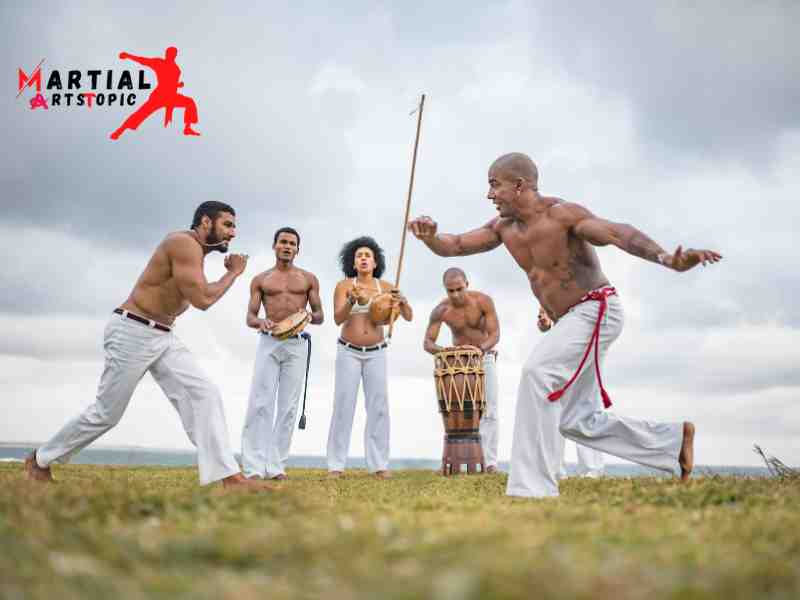
Capoeira, also known as African Martial Arts, is a captivating and dynamic form of martial arts that originated in Angola and Brazil. Combining elements of dance, acrobatics, and music, Capoeira is not only a powerful self-defense technique but also a unique cultural expression. With its roots tracing back to African slaves brought to Brazil, Capoeira carries a rich history and embodies the spirit of resilience and freedom. Through its fluid movements and rhythmic music, Capoeira showcases the harmony between strength and grace, making it an exhilarating and mesmerizing martial art form. Whether you are looking for a way to stay fit, learn self-defense, or immerse yourself in a vibrant cultural experience, Capoeira is the perfect choice.
Laamb wrestling (Senegal)
Laamb wrestling, also known as Senegalese wrestling, is an exciting and traditional African martial art that has gained popularity worldwide. Originating from Senegal, this combat sport showcases the strength, agility, and skill of its participants. Laamb wrestling combines elements of grappling, striking, and ground fighting, creating a dynamic and intense competition. With its rich cultural history and vibrant atmosphere, Laamb wrestling offers a unique and thrilling experience for both spectators and athletes alike. Explore the world of African martial arts and immerse yourself in the exhilarating world of Laamb wrestling.
Zulu stick fighting (South Africa)
Zulu stick fighting, also known as African Martial Arts, is a traditional combat sport that originates from South Africa. The Zulu people have practiced this dynamic martial art for centuries, showcasing their strength, agility, and warrior spirit. In Zulu stick fighting, participants engage in intense duels, wielding long sticks as weapons. This thrilling sport not only serves as self-defense but also embodies the rich cultural heritage and tradition of the Zulu community. Whether you are a martial arts enthusiast or simply want to immerse yourself in the fascinating world of African combat sports, Zulu stick fighting is an awe-inspiring discipline that shouldn’t be missed.
Krav Maga (South Africa)
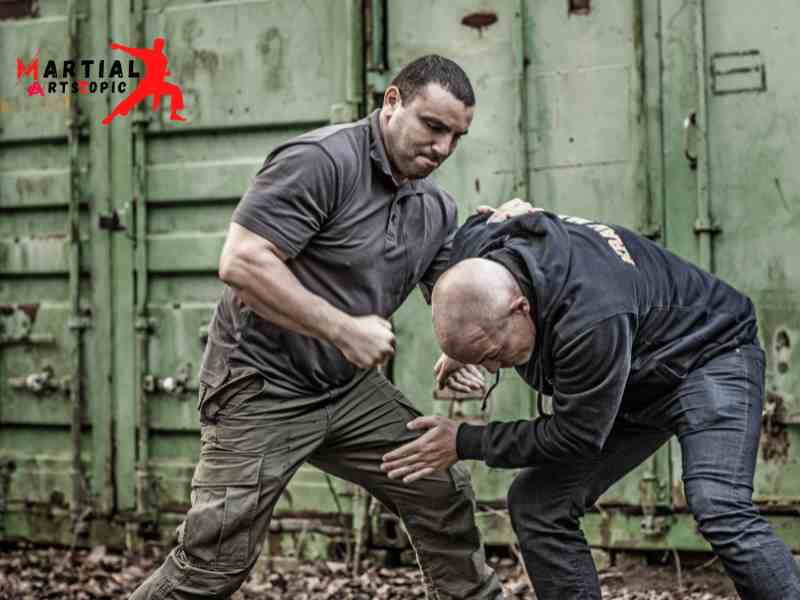
Krav Maga, also known as African Martial Arts, is gaining popularity in South Africa. This self-defense system focuses on practical techniques that can be used in real-life situations. With its origins in the Israeli military, I know Krav Maga for its efficiency and effectiveness. By combining elements of boxing, wrestling, and other martial arts it provides individuals with the skills they need to defend themselves. Whether you are a beginner or an advanced practitioner, Krav Maga in South Africa offers a safe and empowering environment to learn and improve your self-defense abilities. Join the growing community of African Martial Arts enthusiasts and discover the power within you.
Modern Evolution and Global Influence
Modern Evolution and Global Influence: African Martial Arts have experienced a remarkable transformation in recent years. With their rich cultural heritage and ancient techniques, African martial arts have developed to become a significant global influence in the world of combat sports. From Capoeira in Brazil to Dambe in Nigeria, these African martial arts have captivated international audiences with their unique blend of athleticism, artistry, and cultural expression. As practitioners continue to push the boundaries of what is possible in the realm of combat, they increasingly recognized African martial arts for their contribution to the global martial arts landscape. Whether it’s the rhythmic movements of Capoeira or the powerful strikes of Dambe, African martial arts are leaving an indelible mark on the world stage.
Challenges and Preservation Efforts
Challenges and Preservation Efforts in African Martial Arts African martial arts have a rich history and cultural significance, but they face unique challenges in today’s world. One of the main challenges is the lack of awareness and recognition on a global scale. Many people are unfamiliar with the diverse range of African martial arts forms, such as Nguni stick fighting, Dambe, or Nuba wrestling. As a result, these ancient practices are often overlooked or overshadowed by more well-known martial arts styles. However, there is a growing movement to preserve and promote African martial arts. Organizations and enthusiasts are working tirelessly to document these traditions, share their knowledge, and create platforms for practitioners to showcase their skills. Through these preservation efforts, African martial arts can gain the recognition and appreciation they rightfully deserve.
Benefits and Impact
African martial arts have gained recognition worldwide because of their unique techniques and rich cultural heritage. These ancient fighting styles offer many benefits to practitioners, both physically and mentally. Engaging in African martial arts not only improves strength, flexibility, and coordination, but also promotes discipline, focus, and self-confidence. The impact of these martial arts extends beyond the individual level, as they play a vital role in preserving African traditions and fostering a sense of community. By showcasing the diverse African cultures and their martial arts, these practices contribute to cultural exchange, unity, and understanding among people from different backgrounds. Whether it’s Capoeira from Brazil, Dambe from West Africa, or Nuba fighting from Sudan, African martial arts offer an exhilarating experience while promoting physical fitness and cultural appreciation.
In conclusion
African martial arts have a deep and fascinating history that spans across the continent. From Nuba wrestling in Sudan to Dambe in Nigeria and Laamb in Senegal, these martial arts reflect the rich cultural diversity of Africa. As interest in African martial arts continues to grow, it is essential to recognize and appreciate their origins and the invaluable role they play in African heritage. Whether for sport, self-defense, or cultural preservation, African martial arts continue to captivate and inspire people around the world.
